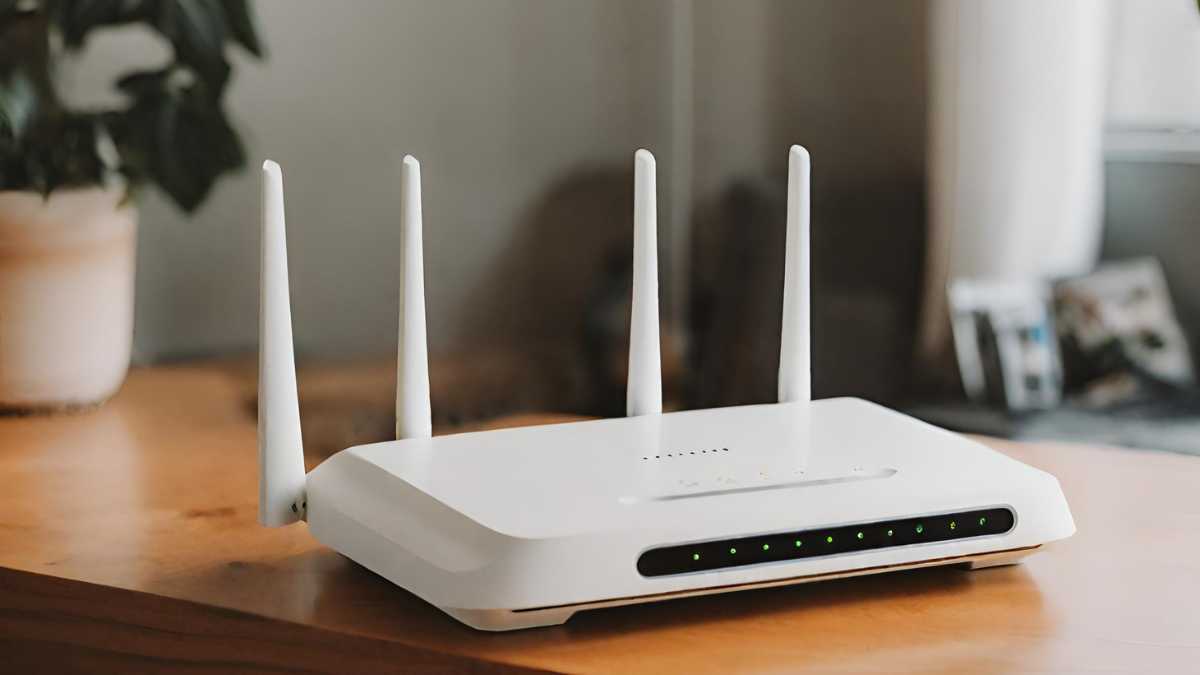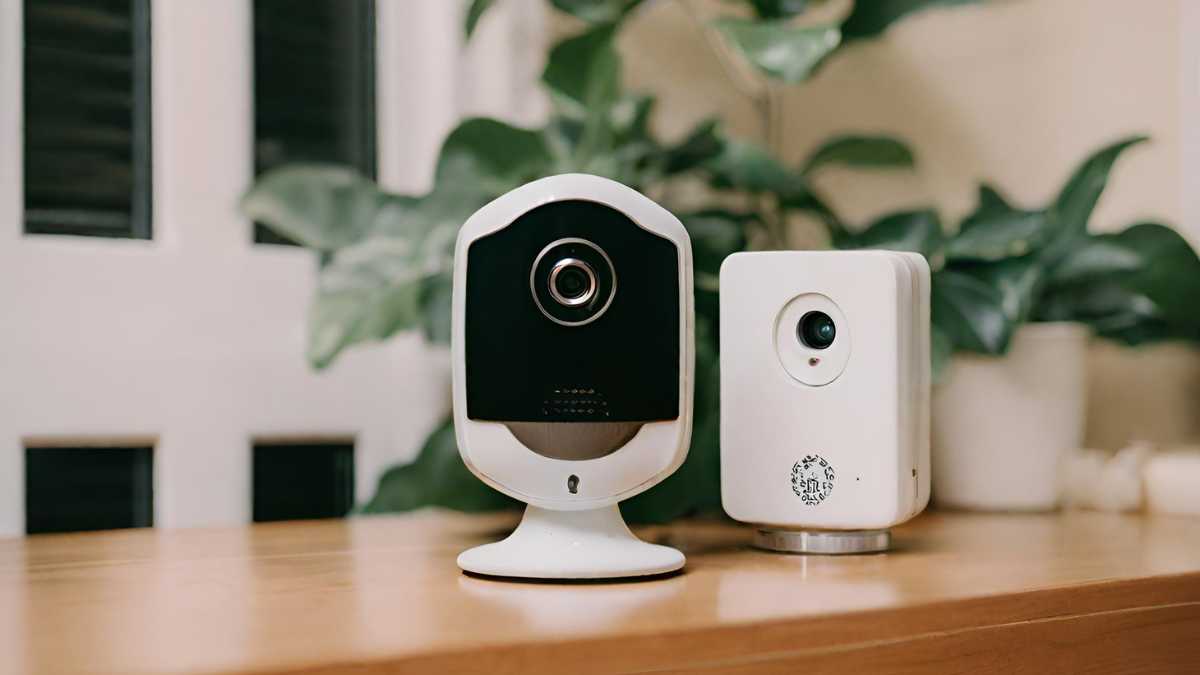The Google Nest Wifi is an excellent router for a smart home, offering reliable coverage and device management capabilities. The Netgear Nighthawk AX12 stands out for tech-savvy households with numerous devices.
Smart homes today demand a router that can handle a plethora of devices and high-bandwidth activities without interruptions. A quality router acts as the central nervous system of a smart home, ensuring all your gadgets stay connected and operate smoothly.
Seamless streaming, online gaming, and managing smart appliances require a router with robust performance and advanced features. The technological landscape of smart homes is constantly evolving, which means your router should be both future-proof and easy to integrate with various smart devices. Dual-band or tri-band routers with support for the latest wireless standards, such as Wi-Fi 6, provide the best experience in today’s interconnected living spaces. User-friendly interfaces for hassle-free setup and maintenance, along with strong security protocols, are also essential to keep your smart home running safely and efficiently.
Choosing The Right Router For Your Smart Home
Ready to turn your house into a smart home? A powerful router is the backbone of your system. This choice will influence your smart devices’ performance. Learn the key points to pick the best one.
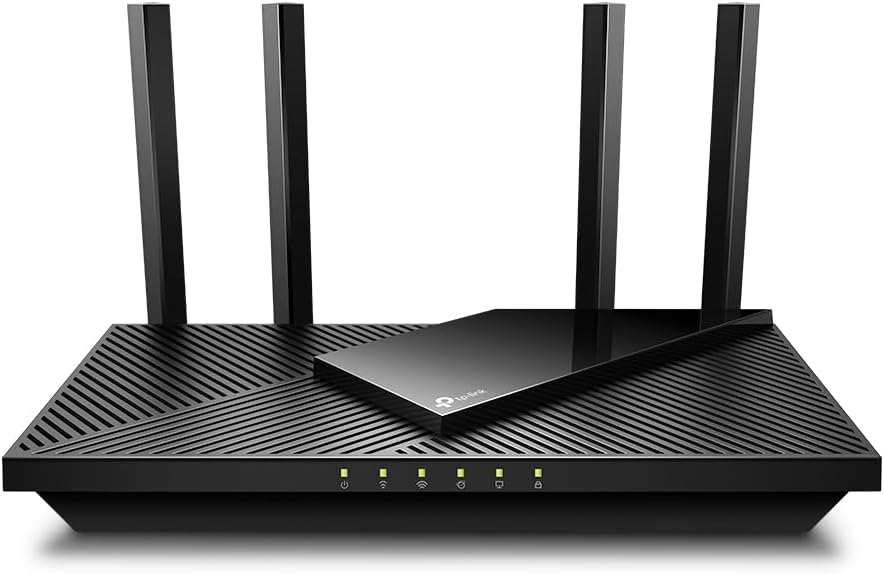
TP-Link Archer AX21
- This is a great budget-friendly option that offers Wi-Fi 6 speeds and MU-MIMO technology.

TP-Link Deco X20
- This mesh system is a good option for larger homes, as it can provide whole-home Wi-Fi coverage.
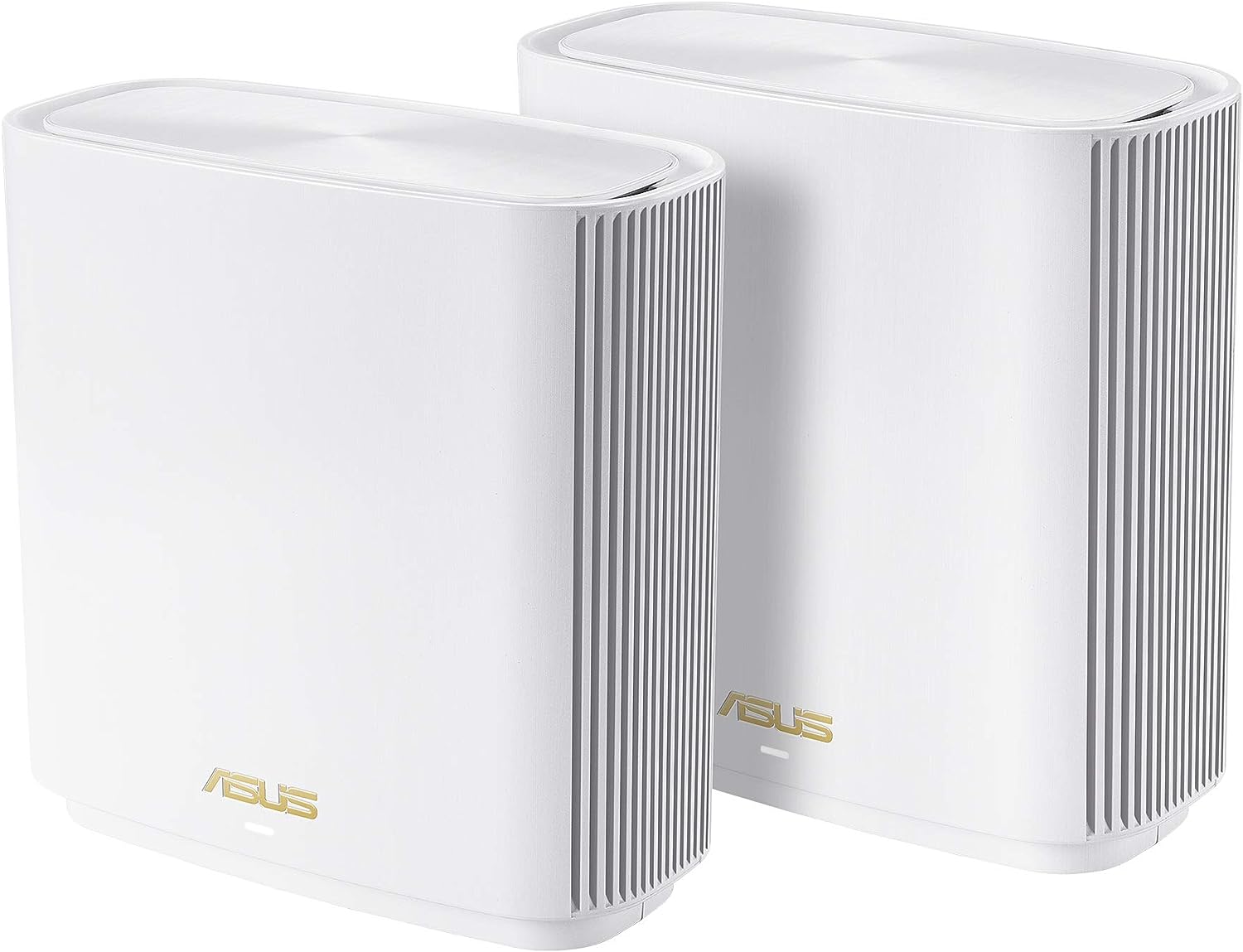
ASUS ZenWiFi AX6600
- This is a high-end option that offers top-of-the-line performance and features.
Criteria For Selecting A Smart Home Router
Selecting a smart home router involves understanding your home’s needs. Key factors include:
- Speed: Fast internet keeps devices running smoothly.
- Range: Coverage should reach all corners of your home.
- Capacity: It must support multiple devices at once.
- Security: Protection for all your connected devices is a must.
Wired Vs. Wireless Routers
Choosing between wired and wireless routers is essential:
| Router Type | Pros | Cons |
|---|---|---|
| Wired | Stable connection, higher security. | Limited mobility, more cables. |
| Wireless | Freedom of movement, easy setup. | Can be less stable, affected by interference. |
Think about device placement and usage to make the best decision. Wireless routers offer convenience for a growing number of smart devices.
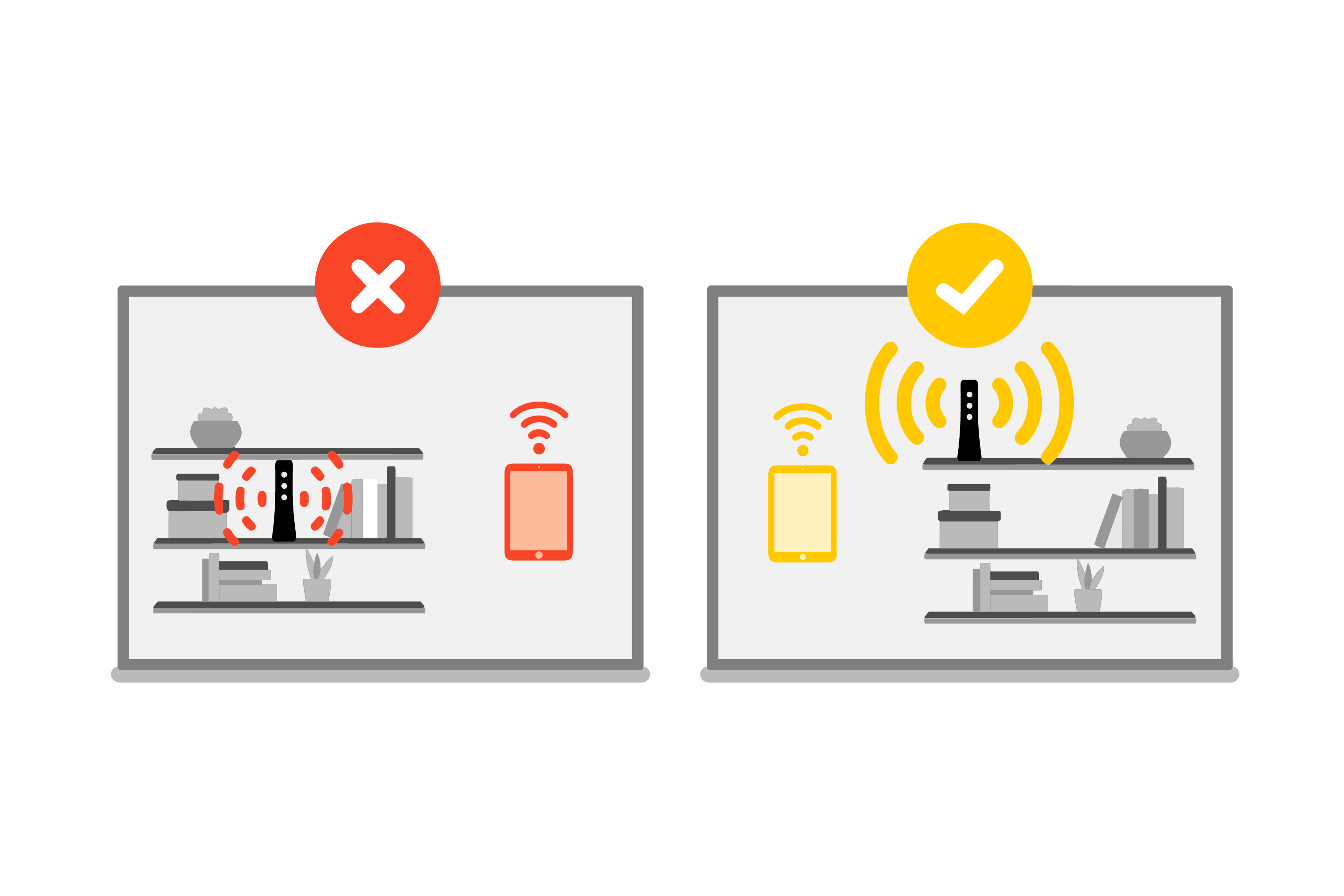
Credit: www.brightspeed.com
Maximizing Your Internet Speed
When diving into the world of smart home technology, choosing the right router becomes a pivotal decision. It’s not just about connectivity; it’s about achieving the fastest possible internet speed to keep your smart devices running smoothly.
Router Positioning For Optimal Performance
It might seem trivial, but the physical placement of your router has a large impact on internet speed.
- Place your router in a central location, away from walls and obstructions.
- Elevate the router; higher positions often result in better signal distribution.
- Keep it clear of other electronics that could cause interference.
Adjusting Settings For Speed Enhancement
Your router’s default settings might not be optimized for the fastest speed. Tweaking a few options can change that.
- Log in to your router’s setup page, usually through a web browser.
- Change the Channel Width to 20 MHz for 2.4 GHz or 40/80 MHz for 5 GHz.
- Update the firmware to the latest version for improved performance.
Table summarizing key router settings:
| Feature | Setting | Benefit |
|---|---|---|
| Channel Width | 20 MHz / 40/80 MHz | Increase speed |
| Firmware | Latest version | Stability & security |
Ensuring Reliability And Consistency
Imagine coming home to a smart home that just works – flawlessly, every single time. That dream hinges on a powerful hub at the heart of your digital sanctuary: the router. A bulletproof network means your smart thermostats, security cameras, and voice assistants never skip a beat. It’s more than just convenience; it’s about ensuring reliability and consistency in your connected lifestyle.
Important Router Features For Stability
To maintain harmony in your smart home, your router must be rock-solid. Here are features that keep your smart devices happily talking to each other:
- Dual-Band or Tri-Band: These bands let your devices choose less crowded frequencies.
- Quality of Service (QoS): This prioritizes traffic to keep video calls smooth while others stream movies.
- MU-MIMO technology: It lets routers communicate with multiple devices simultaneously for better multitasking.
- Beamforming: This targets Wi-Fi signals directly to your devices, making connections stronger.
- Strong processors and memory: A robust CPU and ample RAM keep traffic flowing without bottlenecks.
Common Connectivity Issues And Solutions
Even the best tech can hiccup. Smart homes may experience these issues:
| Issue | Solution |
|---|---|
| Dead Zones | Mesh Systems: Multiple units spread Wi-Fi evenly. |
| Slow Speeds | Upgrade Plans: Switch to faster internet service. |
| Buffering | Reposition Router: Central placement reduces interference. |
| Dropped Connections | Firmware Update: Keep router software current. |
With these insights, choosing a robust router becomes a game-changer for smart homes. Top-notch routers diminish common issues, ensuring a serene, connected living space. Embrace these key features and solutions to usher in unparalleled stability and consistency to your smart home.

Credit: www.techadvisor.com
Managing Multiple Devices
Smart homes teem with devices that all need strong, stable Wi-Fi. From TVs to thermostats, each device adds to the network load. A robust router that manages this load is critical.
Router Capacity For Smart Device Load
A powerful router acts as a manager for your smart home. It ensures every device gets the Wi-Fi it needs. A top-notch router can handle:
- Multiple connections without losing speed
- Large data demands from heavy usage
- Smart home hubs that require constant uptime
Check your router specs for the terms Dual-Band or Tri-Band. These offer more lanes for data to travel, reducing congestion.
Network Prioritization For Seamless Operation
Streaming movies while downloading files? Make sure your router can prioritize tasks. This keeps your video smooth even as other devices munch data.
Look for Quality of Service (QoS) settings. They let you choose which devices get VIP treatment. Your work laptop could get a faster lane than your smart fridge.
| Devices | Prioritization |
|---|---|
| Work Computer | High |
| Smart TV | Medium |
| Smart Lights | Low |
For the best smart home experience, a good router with strong capacity and smart prioritization is key.
Security Measures And Protocols
In the interconnected world of the smart home, a robust router isn’t just about powerful signals and speed. It’s about creating a fort for your digital life. Let’s dive into how the best routers prioritize security measures and protocols to keep your smart home safe.
Securing Your Smart Home Network
Keep invaders out with advanced security features in your router. These include:
- WPA3 Encryption: The latest in Wi-Fi security, making it tougher for hackers.
- Guest Networks: Create separate access for visitors to keep your main network secure.
- VPN Support: Encourage private browsing and protect information.
- Firewalls: Block unwanted traffic and prevent attacks.
Choose routers that offer parental controls and device prioritization for added layers of security.
Staying Updated: Firmware And Software Maintenance
Consistent updates are vital to security health. A superior router will have:
- Automatic Updates: Ensure you’re always running the latest security.
- Easy-to-Use Interface: Access updates and monitor the network securely.
Routers with apps often provide instant notifications about updates. Make sure to check for new versions regularly to safeguard your smart home.
Future-proofing Your Home Network
A reliable home network is the backbone of a smart home. With increasing devices and services, it’s crucial to prepare for tomorrow’s demands. A future-proof network keeps smart homes flexible and up-to-date without replacing equipment frequently.
Investing In Scalable Solutions
Choosing a router that grows with your needs is smart. Scalable solutions mean you won’t need a new router soon. Look for routers that support:
- Mesh networking: Expands coverage easily with additional nodes.
- Advanced QoS: Prioritizes traffic for seamless streaming and gaming.
- Multi-Gig ports: Offers high-speed wired connections for devices.
These features ensure your network stays robust as your smart home evolves.
Router Technologies On The Horizon
The future teems with exciting tech advancements for routers. Future models may include:
| Technology | Benefits |
|---|---|
| Wi-Fi 6E | Unlocks faster speeds and lower latencies. |
| AI Optimization | Auto-adjusts networks for optimal performance. |
| Integrated IoT hubs | Direct control of smart devices from the router. |
Staying informed about upcoming technologies ensures your home network remains compatible with the latest smart home devices.

Credit: www.asus.com
Frequently Asked Questions For Best Router For Smart Home
What Is The Best Router For Many Smart Home Devices?
The best router for handling numerous smart home devices is the Netgear Nighthawk AX12. This router offers advanced Wi-Fi 6 technology, ensuring efficient device management and stable connectivity.
Which Type Of Wifi Router Is Best For Home?
The best WiFi router for home use typically features dual-band connectivity, a strong signal range, and a user-friendly interface. Opt for models from reputable brands with positive user reviews for reliability and performance.
Do I Need A Router For a Smart Home?
Yes, a router is essential for a smart home to connect and manage devices through Wi-Fi.
What Is The Best Router For the Whole House?
The best router for whole-house coverage is the Google Nest Wifi. It offers strong signal strength, simplicity, and scalable mesh networking features to suit various home sizes.
Conclusion
Selecting the right router can elevate your smart home experience. Each option discussed offers unique features and caters to different networking needs. Factor in your gadgets, space, and usage patterns when deciding. Embrace the connected life with a router that ensures seamless operation of your intelligent ecosystem.
Happy smart home networking!
